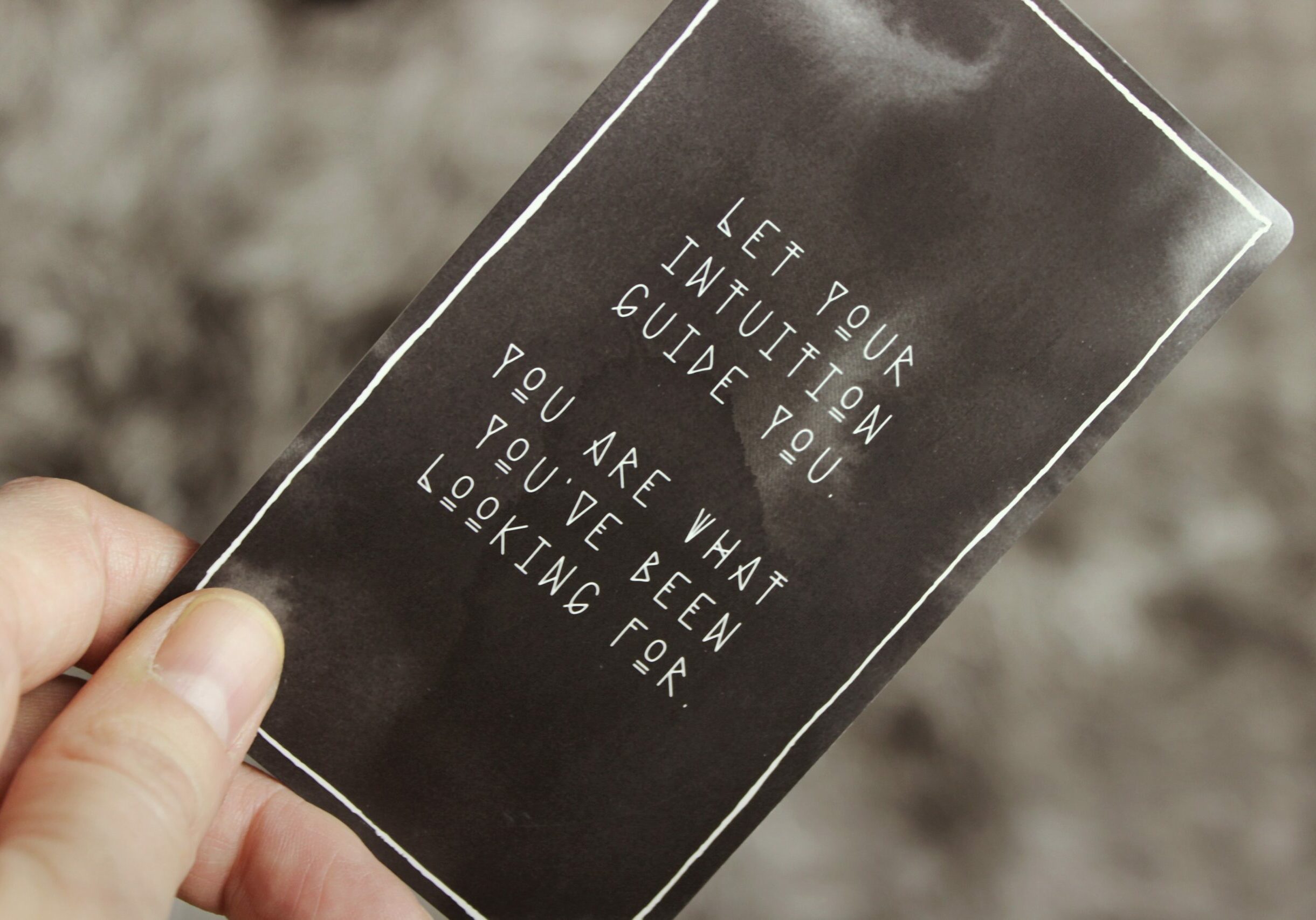Career Intuition: Can You Trust Your Gut?

Intuition is defined as the ability to understand something immediately, without need for conscious reasoning. In business, it can feel like a strong pull to head in a certain direction.
The ability for intuition is something we naturally possess. It guides us in our parenting (a mother’s intuition), it helps us in relationships (having a ‘gut’ feeling about a person), and it influences our job decisions (this feels right).
While society aggregates data at a lightning pace, intuition is almost impossible to measure.
What is behind our intuitions? Can we trust these gut feelings? Can intuition be developed to make better decisions in our professional journey?
Intuition is Built on Past Experiences
Our intuitive feelings come out of past experiences with similar situations. Subconsciously we evaluate whether we are reminded of something we faced previously. “It’s usually assumed that (the intuitive) process draws on the mind’s vast storehouse of memories,” says Eric Bonabeau of Harvard Business Review.
In 1977, Bruce Henderson, founder of the Boston Consulting Group called intuition “the subconscious integration of all the experiences, conditioning, and knowledge of a lifetime, including the cultural and emotional biases of that lifetime” (Bonabeau).
If intuition is based on experience and memory, it makes sense that it becomes clearer and more reliable as we gain life experience. “I noticed that as I acquired more experience in my field, I found myself better at assessing issues quickly and having a “gut feeling” about the direction I should go,” says Ivan Misner of Entrepreneur. “What I had presumed was instinct was — at least in part — quickly assessing the situation given my amassed knowledge of a particular subject.”
Some of us have well-developed “people skill” instinct. The more experience we have interacting with people and varying personality types, the better our instinct becomes in determining trustworthiness or in determining something like whether someone is motivated to close a sale, for example.
If you take on a proactive mindset as far as your career, think about your plan for the next five years. Being proactive can activate your career.
Be Wary of Relying Exclusively on Intuition
Intuition may become more reliable with experience but be wary of relying solely on intuition. In many situations, it does not substitute for taking the time to analyze hard data.
Bonabeau says that people like to go with intuition because it’s romantic. “It raises business above the drab world of spreadsheets and income statements and turns it into something of an art form,” he says. “The executive office becomes a place of inspiration and vision rather than planning and number crunching.”
But as romantic as intuition can seem, there is no scientific evidence that our gut feelings will correctly correlate with the best decisions. “Our desire to believe in the wisdom of intuition blinds us to the less romantic realities of business decision making. We remember the examples of hunches that pay off but conveniently forget all the ones that turn out badly,” Bonabeau says.
Ultimately, it is best to rely on a mix of data analysis AND intuition when making an important decision.
How to Tap into Your Intuition
To tap into what your intuition is saying, spend time in quiet reflection. Experts advise meditating on life goals and questioning why you are intuitively drawn one way or another.
This may mean taking time away from others to get honest with yourself.
What is your physical body communicating as far as the decision? Stomach churning and sleepless nights may be telling you it is too big of a risk. Alternately, perhaps the flutter of excitement pushes you forward.
At Artemis Consultants, we see candidates make big career decisions daily. Intuition is a part of their decision. When contemplating a new job, trust Artemis to provide the data you need to be informed. And then, trust your gut.
“Your time is limited, so don’t waste it living someone else’s life. Don’t be trapped by dogma – which is living with the results of other people’s thinking. Don’t let the noise of others’ opinions drown out your own inner voice. And most important, have the courage to follow your heart and intuition.”—Steve Jobs
–Written exclusively for Artemis Consultants by Content Writer Mellody Melville




